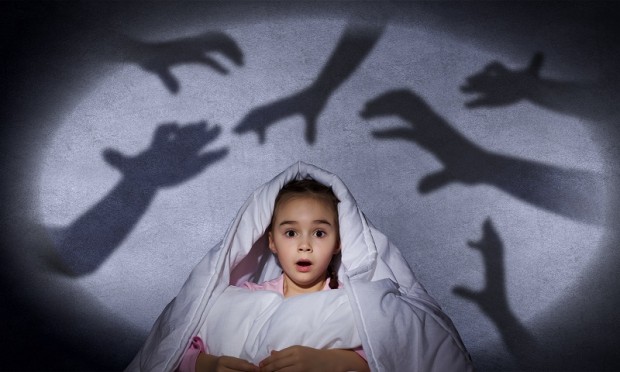Night terrors, also called nocturnal terrors, are occasional events of shouting and agitation during sleep. In some cases, night terrors also involve somnambulism.
It is difficult to determine why some children suffer from night terrors and others do not, but it seems that tiredness and stress are often the triggers. Although they may have night terrors, these are more common in children under 12 years. In most cases, they will disappear by the time the child reaches seventh or ninth grade.
Dr. Nusheen Ameenuddin, a specialist in Community Medicine for Children and Adolescents at the Mayo Clinic in Rochester, Minn., Explains that "Although behavior during night terrors can put a child at risk of physical harm as a result of a fall in stroke , night terrors in themselves are no child harmful or pose any risk to health "
Most of the time children do not remember having night terrors, and therefore, these are often more burdensome for the other members of the family than for the child himself.
"Night terrors tend to occur within a family, so when the parent loses the children, the children are more at risk of suffering." Night terrors are more likely to occur when a child is too tired or low a lot of stress, "says Dr. Ameenuddin.
Sleeping in some new environment or in a noisy or bustling place can contribute to night terrors. In addition, sometimes fever can trigger night terrors in children.
One of the best steps you can take to avoid night terrors is to make sure your child rests well. Likewise, regularly adopting a bedtime routine that is relaxing and does not involve anything electronic, such as cell phones, television, computers, or video games, can also help.
"Reading together, playing something quiet or talking a little can help the child calm down before going to bed. When it seems that your child has not slept enough at night, consider a nap during the day. As much as possible, keep the stress level low in the home and help your child overcome stressful or difficult situations, "advises the Mayo Clinic specialist.
She adds, "In order to reduce the risk of your child getting hurt during one of the night terrors, create a safe environment in the room. Place all sharp, heavy or fragile objects out of reach at night, secure the doors and windows, and grill the stairs. Children who suffer from night terrors should not sleep on the upper bed of a litter. "
Never punish your child for having them or threaten to punish him if it happens again, as that only increases the child's stress and makes the situation worse.
"When your child has a night terror event, accompany him until he is done. If necessary, gently prevent him from getting out of bed or take him back. Talk to him in a sweet, calm voice, without trying to wake her up because the sleep phase during which night terror occurs makes the child less likely to respond to the attempt to wake him up, "the doctor specifies.
"It is not usually necessary to treat night terrors; but if they make your home much more disturbing and regular, make an appointment with your child's doctor so that the practitioner can evaluate the situation. In rare cases, evaluation of a sleep medicine specialist may be helpful for a child suffering from frequent night terrors; however, in most cases, night terrors disappear as the child grows, without any medical intervention, "concludes the Mayo Clinic doctor.
Fuente: buenavibra.es
